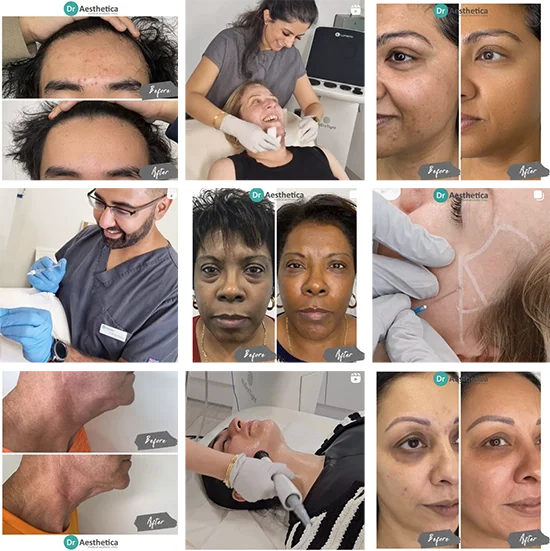Migraine is one of the most common headache disorders characterized by intense, throbbing or pulsating sensations on one or both sides of the head. Migraine attacks can last for hours or even days.
In some cases, the pain can be so severe that it prevents you from going about your daily activities. Most people who suffer from such migraines can attest to how annoying these headaches are.
Although the causes of migraines are not fully understood, there are several common migraine triggers that play a role in the frequency and severity of migraine attacks. This article looks at four triggers and the steps you can take to limit their effects.
1. Disruption in sleep pattern
Research has long established a link between sleep disorders and migraines. For one, lack of sleep has been shown to increase the severity and frequency of migraines. A study in the journal Headache found that patients with chronic migraines had abnormally low levels of melatonin.
Melatonin is a hormone secreted by the pineal gland in your brain. It is responsible for making you feel sleepy and helps you fall asleep. Your body releases melatonin at night when you sleep.
If you do not get enough sleep, your body probably does not produce enough melatonin, which means you are more likely to get migraines.
Remedy:
- Set a schedule for when you go to bed and when you wake up. Stick to this routine as often as possible to bring the functions of your body's circadian rhythm back into balance.
- Refrain from caffeine and alcohol late in the day. These substances stimulate your nervous system and can prevent your body from relaxing naturally at night.
- Create a nightly routine that helps you relax before bed (e.g. reading a book or listening to music). Make sure you turn off the TV and other screens at least an hour before bedtime.
- Take a melatonin supplement. As melatonin can change brain chemistry, you should consult your GP before taking it.

2. Stress
Perhaps the biggest culprit of all is stress, which is a major trigger in almost 80% of people who suffer from migraine attacks. When everyday stress is compounded by constant worry about when the next attack will come, you have a recipe for chronic migraine.
What you should pay special attention to is the "letdown effect" - a pattern where people experience a flare-up of a chronic condition right after a stressful event. In this case, it's a migraine episode.
In a stressful situation, our body responds with an increased release of cortisol and adrenaline (stress hormones), which make us more mentally agile and physically resilient. Once the stress is over, these hormone levels drop.
However, other chemicals remain from the stress response that can lead to inflammation and trigger a migraine.
Remedy:
To avoid the "let down" effect, allow yourself a cool-down period, just as you would after exercise. Wondering where to start? Deep breathing is a great relaxation technique as it gives your mind and body a break while making you more aware of how you feel. Or a short bout of exercise to trigger a positive immune system response. However, it is important to find a relaxation technique that works for you.

3. Sensory stimuli
Bright lights, loud noises, and strong smells can trigger migraines in some people. Everyone is sensitive to light to some degree - just think of going from a dark room into a bright, sunny day. However, some people find even normal light painful or uncomfortable.
For these people, bright light can even trigger a migraine. On the other hand, certain smells can activate certain nerve receptors in the nose, triggering a migraine attack or worsening a migraine that has already begun. These include perfume, cigarette smoke, paint thinner, cleaning products, or car exhaust.
However, the specific odours that can trigger migraines vary from person to person. These odours are also more likely to trigger a migraine if you are exposed to them for a long period of time or if you are in an enclosed space.
Remedy:
- Wear sunglasses with an FL -41 filter when you go outside to reduce visual stress. Research shows that FL -41 glasses can help relieve painful light sensitivity and reduce migraine attacks by blocking the blue wavelengths of light.
- Avoid strong smells that you suspect are triggering your migraines. For example, if you find that perfume is one of your migraine triggers, consider setting up a perfume-free room at work or at home.

4. Hormonal fluctuations in women
This is one of the main reasons why more women than men suffer from migraine. Women often find a connection between migraines and hormonal changes.
When oestrogen and progesterone levels drop or change before or during menstruation, pregnancy and menopause, the severity or frequency of migraines may worsen. For example, many women with migraines report an increase in attacks before or during their period.
The rapid increase in oestrogen levels during pregnancy often relieves migraines and in some cases makes them go away completely. After delivery, however, the abrupt drop in oestrogen levels - along with stress and lack of sleep - can trigger migraines again.
Related: How to Stop Hyperhidrosis During Menopause
Remedy:
- Although fluctuating hormone levels can affect migraine behaviour, you are not completely at the mercy of your hormones. Your doctor may prescribe various medications to help relieve the headache and other symptoms such as nausea or vomiting.
- Check with your doctor before taking hormone supplements, as they are often unregulated and may contain ingredients that are unsafe.

A Great Way to Mitigate Migraine Symptoms
Being aware of and avoiding these common migraine triggers is key to improving your quality of life. One way to find out the most common migraine triggers is to keep a migraine diary (record frequency, duration, severity and triggers).
It is advisable to talk to your doctor before taking any migraine medication. Also, note that excessive use of such medications can make your symptoms worse. And there is one more thing you can try: Botox!
The "king of anti-ageing" has been approved by the FDA and MHRA to treat chronic migraines for more than a decade. Want to learn how Botox can help you reduce your migraine days by more than 50%?Talk to one of our professional staff today.


